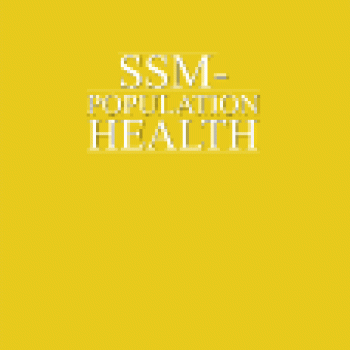Publication Information

Child chronic malnutrition is endemic in low- and middle-income countries and deleterious for child development. Studies investigating the relationship between nutrition at different periods of childhood, as measured by growth in these periods (growth trajectories), and cognitive development have produced mixed evidence. Although an explanation of this has been that different studies use different approaches to model growth trajectories, the differences across approaches are not well understood. Furthermore, little is known about the pathways linking growth trajectories and cognitive achievement. In this paper, we develop and estimate a general path model of the relationship between growth trajectories and cognitive achievement using data on four cohorts from Ethiopia, India, Peru, and Vietnam. The model is used to: (a) compare two of the most common approaches to modelling growth trajectories in the literature, namely the lifecourse plot and the conditional body size model, and (b) investigate the potential channels via which the association between growth in each period and cognitive achievement manifests. We show that the two approaches are expected to produce systematically different results that have distinct interpretations. Results suggest that growth from conception through age 1 year, between age 1 and 5 years, and between 5 and 8 years, are each positively and significantly associated with cognitive achievement at age 8 years and that this may be partly explained by the fact that faster-growing children start school earlier. We also find that a significant share of the association between early growth and later cognitive achievement is mediated through growth in interim periods.
Highlights Different models of growth trajectories and cognition have distinct interpretations. Growth through and after infancy is positively associated with childhood cognition. Early school enrolment explains the link between growth trajectories and cognition. Early growth predicts later growth that in turns predicts cognition. KeywordsNutrition; Cognitive achievement; Path analysis; Cohort study; Ethiopia; India; Peru; Vietnam
Reference:Andreas Georgiadis, et al. (2016) Growth Trajectories from Conception through Middle Childhood and Cognitive Achievement at Age 8 Years: Evidence from Four Low- and Middle-Income Countries, Social Science and Medicine - Population Health 2: 43–54.

Child chronic malnutrition is endemic in low- and middle-income countries and deleterious for child development. Studies investigating the relationship between nutrition at different periods of childhood, as measured by growth in these periods (growth trajectories), and cognitive development have produced mixed evidence. Although an explanation of this has been that different studies use different approaches to model growth trajectories, the differences across approaches are not well understood. Furthermore, little is known about the pathways linking growth trajectories and cognitive achievement. In this paper, we develop and estimate a general path model of the relationship between growth trajectories and cognitive achievement using data on four cohorts from Ethiopia, India, Peru, and Vietnam. The model is used to: (a) compare two of the most common approaches to modelling growth trajectories in the literature, namely the lifecourse plot and the conditional body size model, and (b) investigate the potential channels via which the association between growth in each period and cognitive achievement manifests. We show that the two approaches are expected to produce systematically different results that have distinct interpretations. Results suggest that growth from conception through age 1 year, between age 1 and 5 years, and between 5 and 8 years, are each positively and significantly associated with cognitive achievement at age 8 years and that this may be partly explained by the fact that faster-growing children start school earlier. We also find that a significant share of the association between early growth and later cognitive achievement is mediated through growth in interim periods.
Highlights Different models of growth trajectories and cognition have distinct interpretations. Growth through and after infancy is positively associated with childhood cognition. Early school enrolment explains the link between growth trajectories and cognition. Early growth predicts later growth that in turns predicts cognition. KeywordsNutrition; Cognitive achievement; Path analysis; Cohort study; Ethiopia; India; Peru; Vietnam
Reference:Andreas Georgiadis, et al. (2016) Growth Trajectories from Conception through Middle Childhood and Cognitive Achievement at Age 8 Years: Evidence from Four Low- and Middle-Income Countries, Social Science and Medicine - Population Health 2: 43–54.

